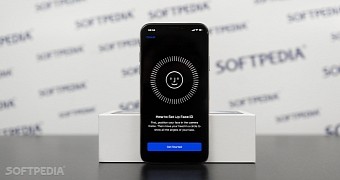Apple claims that iPhone X facial recognition system is substantially more secure than Touch ID fingerprint sensor, but evidence keeps landing to prove exactly the opposite.
Vietnamese cybersecurity firm Bkav, who previously created a mask that was capable of breaching Face ID, is back with a new project that it calls “artificial twin” and which demonstrates that it’s very easy to actually bypass the facial recognition system on the iPhone X.
To show how effective this new mask is, the firm reset Face ID settings and re-enrolled the face in the iPhone X, only to prove that the artificial twin mask can unlock the device even when held in hand.
The mask was created with a 3D printer and using stone powder, with eyes made of 2D infrared images that are glued to the printed model.
Affordable way to bypass Face ID
With this demonstration, the firm says it’s easy to take advantage of the iPhone X vulnerability that makes it possible for twins to sometime bypass Face ID configured on their siblings’ devices. But at the same time, the company warns against using Face ID to protect the device and purchases, as it’s very easy to create a 3D model that could breach it.
“In field of cyber security, this is not secured and we have to raise the security severity level of Face ID. Which means it is not secured for all of us to use Face ID in business transactions, instead of just not suitable for VIP as we warned previously,” the firm says.
Without a fingerprint sensor, the only way for iPhone X users to protect their devices if Face ID is not configured is to use the passcode, though this is clearly a less convenient method.
Apple has never commented on these tests showing the drawbacks of its facial recognition system, and the firm sticks with its 1:1,000,000 chance of someone else to unlock an iPhone X.

 14 DAY TRIAL //
14 DAY TRIAL // 